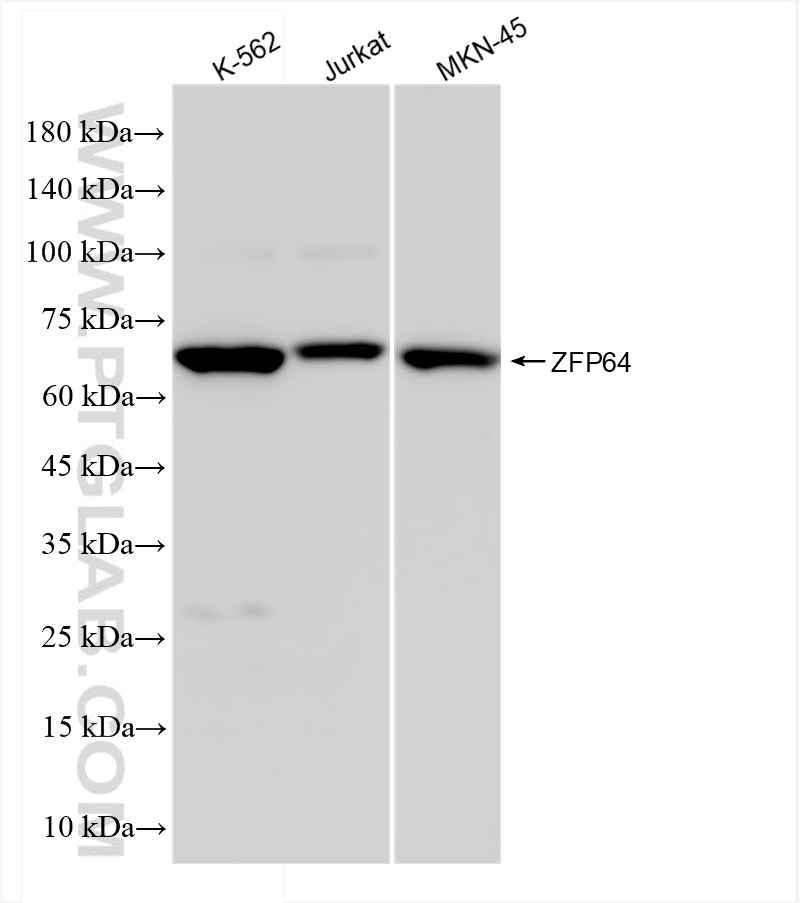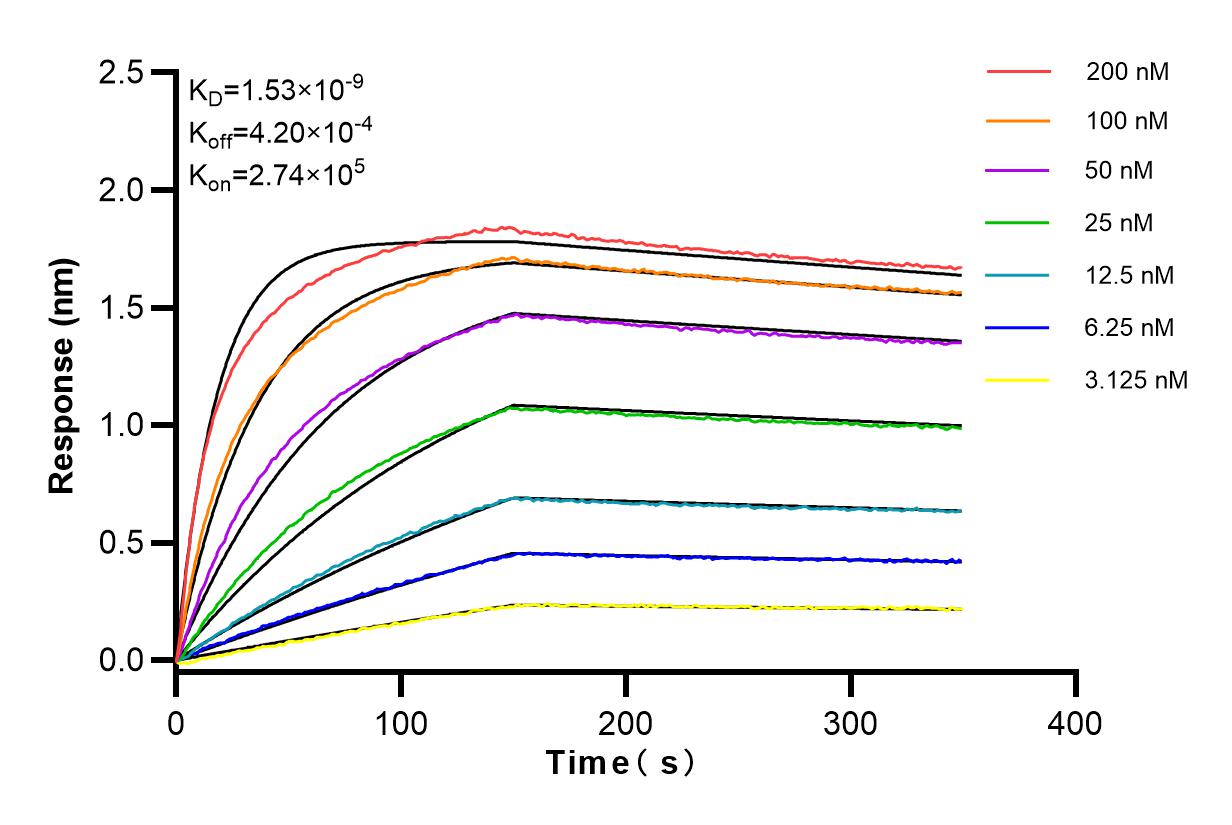验证数据展示
经过测试的应用
| Positive WB detected in | K-562 cells, Jurkat cells, MKN-45 cells |
推荐稀释比
| 应用 | 推荐稀释比 |
|---|---|
| Western Blot (WB) | WB : 1:5000-1:50000 |
| It is recommended that this reagent should be titrated in each testing system to obtain optimal results. | |
| Sample-dependent, Check data in validation data gallery. | |
产品信息
83825-3-RR targets ZFP64 in WB, ELISA applications and shows reactivity with human samples.
| 经测试应用 | WB, ELISA Application Description |
| 经测试反应性 | human |
| 免疫原 |
CatNo: Ag10971 Product name: Recombinant human ZFP64 protein Source: e coli.-derived, PGEX-4T Tag: GST Domain: 357-681 aa of BC041622 Sequence: ALRIHERIHCTDRPFKCNYCSFDTKQPSNLSKHMKKFHGDMVKTEALERKDTGRQSSRQVAKLDAKKSFHCDICDASFMREDSLRSHKRQHSEYNESKNSDVTVLQFQIDPSKQPATPLTVGHLQVPLQPSQVPQFSEGRVKIIVGHQVPQANTIVQAAAAAVNIVPPALVAQNPEELPGNSRLQILRQVSLIAPPQSSRCPSEAGAMTQPAVLLTTHEQTDGATLHQTLIPTASGGPQEGSGNQTFITSSGITCTDFEGLNALIQEGTAEVTVVSDGGQNIAVATTAPPVFSSSSQQELPKQTYSIIQGAAHPALLCPADSIPD 种属同源性预测 |
| 宿主/亚型 | Rabbit / IgG |
| 抗体类别 | Recombinant |
| 产品类型 | Antibody |
| 全称 | zinc finger protein 64 homolog (mouse) |
| 别名 | ZNF338, Zinc finger protein 64, Zfp-64, Zfp 64, 240847F9 |
| 计算分子量 | 681 aa, 75 kDa |
| 观测分子量 | 70 kDa |
| GenBank蛋白编号 | BC041622 |
| 基因名称 | ZFP64 |
| Gene ID (NCBI) | 55734 |
| RRID | AB_3671410 |
| 偶联类型 | Unconjugated |
| 形式 | Liquid |
| 纯化方式 | Protein A purfication |
| UNIPROT ID | Q9NTW7 |
| 储存缓冲液 | PBS with 0.02% sodium azide and 50% glycerol, pH 7.3. |
| 储存条件 | Store at -20°C. Stable for one year after shipment. Aliquoting is unnecessary for -20oC storage. |
背景介绍
ZFP64 (also known as ZNF338) is a member of the Krüppel C2H2-type zinc finger family. ZFP64 is a coactivator of Notch1, mediating mesenchymal cell differentiation. ZFP64 expression was up-regulated in mouse peritoneal macrophages in response to stimulation with the TLR4 ligand LPS with a 2-fold increase. The MLL gene encoding the MLL fusion protein is easily activated by ZFP64. ZFP64 is essential for the continuous production of MLL fusion proteins in blood cancer and produces more cancer cells. Since ZFP64 deletion completely and specifically inhibits MLL fusion protein production and leukemia cascade growth, it is an ideal drug target.
实验方案
| Product Specific Protocols | |
|---|---|
| WB protocol for ZFP64 antibody 83825-3-RR | Download protocol |
| Standard Protocols | |
|---|---|
| Click here to view our Standard Protocols |



